Description
ABSTRACT
An Assessment of the Legal Framework for the Protection of Users of Automated Teller Machines in Nigeria
Festus Okechukwu Ukwueze* and Chidubem Akubue-Izundu**
One of the innovations which Information and Communication Technology (ICT) brought to the banking industry is the Automated Teller Machine (ATM). In their various forms, ATMs are ubiquitously deployed in bank premises, shopping malls, gas stations and other strategic places thus making basic transactions such as cash withdrawal, fund transfer, payment of utility bills easier for bank customers. The benefits of ATM to both the users and the banks are enormous. The users no longer have to undertake the hassles of going to the banks and at times being in long queues to carry out basic transactions. The banks enjoy the convenience of having such transactions taken care of by ATMs even after working hours, leaving only more complex transactions to be handled by staff, with the attendant benefits of reduction in cost. There are, however, challenges such as fraud and technical issues associated with the use of these non-human agents, especially in developing countries with inadequate infrastructure and weak regulations. This article examines the relevant legal instruments regulating the use of ATMs in Nigeria, a leading economy in Africa and the continent’s most populous nation. It reveals the inadequacies in the law and policies relating to the operations of ATMs and proffers suggestions on measures to be put in place to strengthen the protection and confidence of users of ATMs in the country.
Keywords: Automated teller machines, Electronic payment channels, Cashless economy, Consumer protection, Nigerian banking industry.
INTRODUCTION
One of the technological innovations that have made banking operations more efficient and 1including cash deposits, withdrawals and transfers, payment of bills and a host of other transactions which previously were done manually. Apart from the ease of obtaining cash to fulfil obligations in transactions that require cash payment, ATMs have greatly enhanced other routine transactions such as payment for utilities such as electricity, television, telephone, water, etc. Credit/debit cards associated with ATMs play vital roles in promoting cash-less economy1 as they are means of payments through Point of Sale (POS) terminals and online platforms. ATMs save customers the trouble of visiting their banks and sometimes stand in long queues before making cash withdrawals, deposits or transfers as they can easily obtain cash and carry out routine…
* LL.B, BL, LL.M, PhD. SeniorLecturer, Department of Commercial and Corporate Law, Faculty of Law, University of Nigeria, Enugu, Nigeria; Email: fe************@*****du.ng.
** LL.B, BL. Researcher, Faculty of Law, University of Nigeria, Enugu, Nigeria; Email: ch***************************@*****du.ng.
- A cashless society is one where the use of paper money or cash transaction is significantly reduced and most purchases made are by credit cards, recharge cards, cheques or direct transfer from one account to another through electronic banking. See Jumoke Soyemi, Babajide Olugbenga Soyemi and Hammed Mudasiru, ‘Nigeria Cashless Culture: The Open Issues’ (2015) 4 International Journal of Engineering Sciences 51.

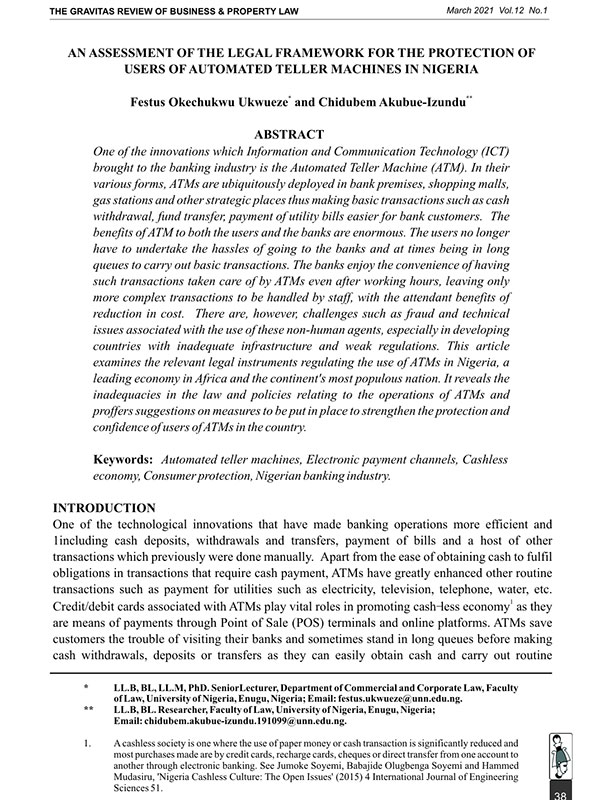
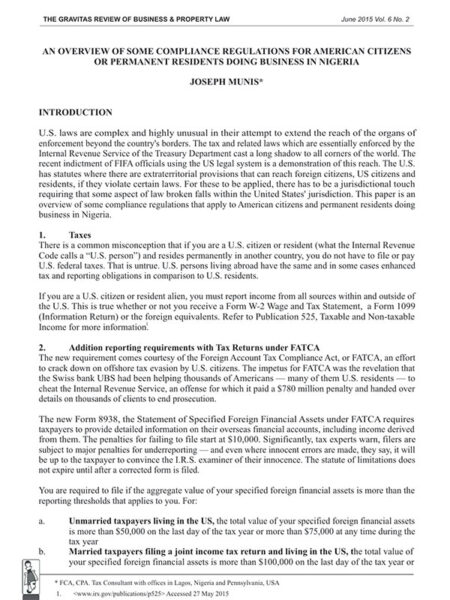
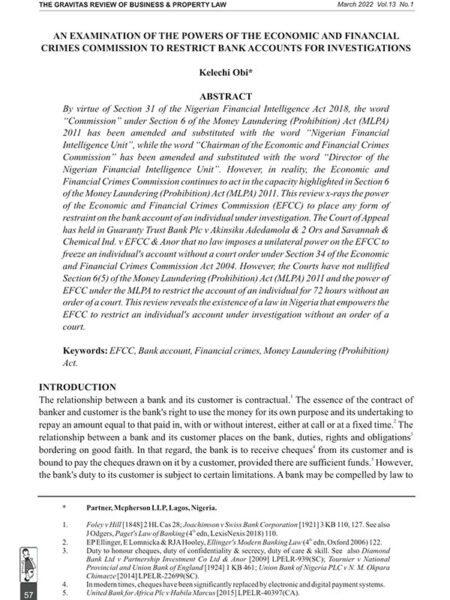
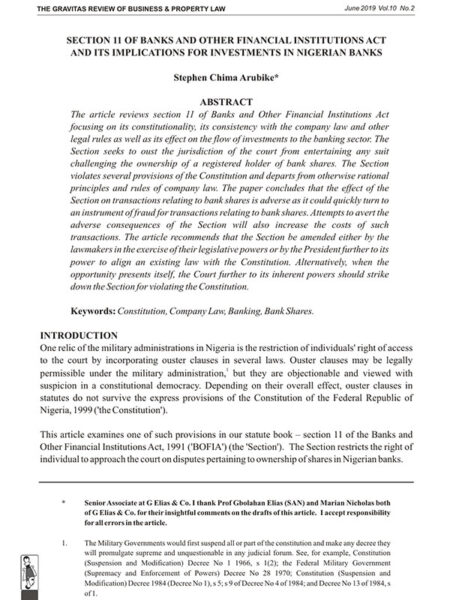
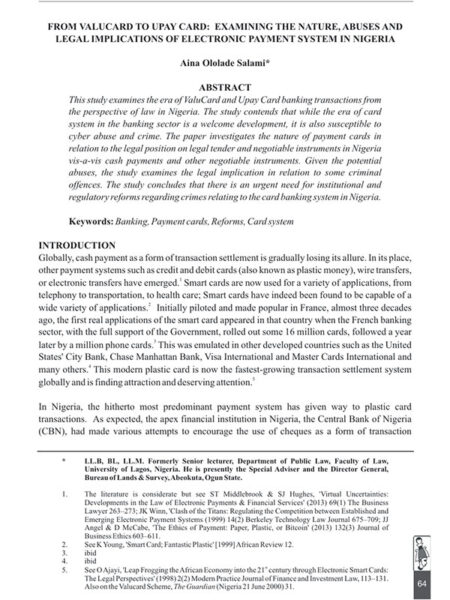


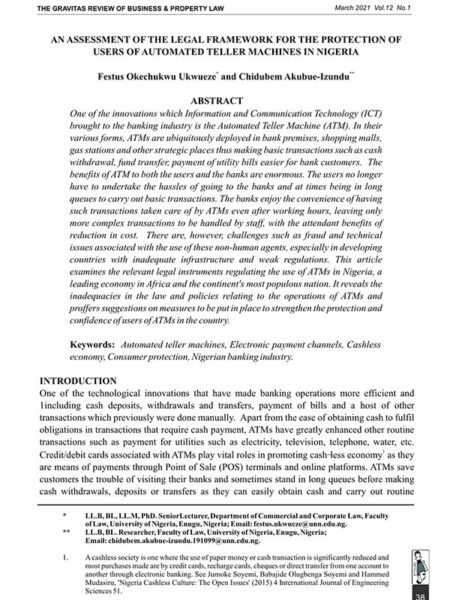
Reviews
There are no reviews yet.